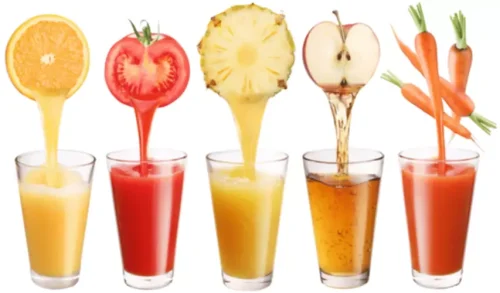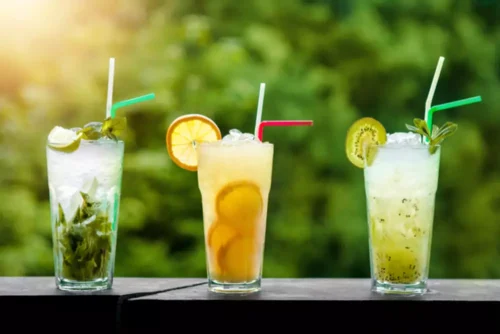
So, someone may not be able to grasp the bigger picture of a situation. Instead, they may zoom in on a particularly small thing and have an overly aggressive response (2). Alcohol’s ability to temporarily reduce anxiety can also intensify the urge to act on impulse. If you’re less worried about what others will think, or of any consequences, you could be more likely to have a strong reaction when something upsets you (2). Now that we know what alcoholic rage syndrome is, can we do anything about it? In other words, can we make our inner “Tammy” or “Jimmy” (or whatever name your boozy alter-ego might have) stay away for good?

Risk factors
The early months of sobriety can be an emotional rollercoaster filled with many highs and lows; the relationship between alcoholism and anger is a complicated one. Figure 1 and Table 1 show a summary of the 12 studies included in the systematic review and meta-analysis of the literature. Women were not included, because only four of the 12 studies presented complete data on women’s anger scores.

Medication as Adjunctive Treatment
- That, paired with the way people make decisions when they’re drinking, is often a recipe for disaster.
- This blog was designed to help you understand the relationship between anger and alcohol and how they can amplify each other’s impact.
- To avoid reacting with anger, it’s important to identify what is and isn’t in our control, and manage our expectations accordingly.
- Decreased cognitive function also means it’s more likely for you to misread a situation and overreact.
Outpatient treatment is less intensive than inpatient treatment or partial hospitalization programs. They are best for people who have a high motivation to recover, but cannot leave their responsibilities at home, work, or school. PHPs accept new patients, and people who have completed an inpatient alcoholism and anger program and require additional intensive treatment. Anger management therapy is one of the best options available for helping you understand your emotions and find effective ways to cope with them. Lack of impulse control can make someone fly into a fit of rage or become aggressive rapidly.
Are You Struggling with Facebook Addiction Disorder?

Additionally, more than three-quarters of study participants with the gene had mood disorders, personality disorders, and mood swings (10). Studies have shown that serotonin levels may begin decreasing within 30 minutes of that first drink (4). Plummeting serotonin levels hinder the brain’s ability to regulate anger and are linked to impulsive aggression (5). Drinking, or even the anticipation of consuming alcohol, causes the production of dopamine. The PFC region of the brain is where we make judgment calls about potential behavior before acting on it.
Tame Your Rage and Drink Less With Reframe!

It was found that the prevalence was higher for females than males from 2000 to 2010 for any binge drinking in the preceding month. On the contrary, the reason for the convergence of frequency in the male and female binge drinking habits is estimated to occur due to the large decline in the binge drinking frequency within men than the women. Furthermore, evidence also shows that the convergence of men and women has usually been stronger in the age group of young adults in comparison to any other age group (Wilsnack et al., 2018). Data from 2006 to 2018 indicate that both the men and women increasingly binge drink; in women, the largest increase was found in the age group 30–44 years without children (Sarah and Keyes, 2019). Recognizing that individuals may grapple with underlying traumas or stressors fueling both alcohol consumption and anger eruptions, it becomes essential to address these issues holistically. By understanding the function of these behaviors, individuals can learn alternative coping mechanisms and stress management techniques to address underlying emotional distress effectively.
Alcohol has been shown to intensify feelings of anger and aggression in many individuals. This link is miscellaneous, involving both physiological and psychological factors. Before exploring the effects of alcohol on brain functions, it’s crucial to understand the connection https://ecosoberhouse.com/ between alcohol consumption and anger. Becoming angry when intoxicated can lead to domestic violence incidents. In a WHO assessment on domestic violence and alcohol, 55% of surveyed Americans stated they thought their partner was intoxicated during a physical assault.
Often, it takes months (or even years) before someone finds themselves physiologically and psychologically dependent on alcohol. Because of this, it’s not always easy to figure out whether or not someone you love has a “problem,” let alone exactly when it began. Additionally, it can be hard for people to spot the signs of AUD in themselves. I made a joke that upset him and he started yelling and calling me names. I have learned that when Tom gets like that, it’s best to just agree with him.
In most cases, women are at a higher risk of experiencing alcohol-related domestic violence from male partners. If you feel like you have a pattern of being aggressive when drinking alcohol, you should understand how your behavior can impact yourself and others. Furthermore, alcohol can make you focus too much on specific words or behaviors from other people. If you see someone cut in front of you in line for the bathroom at a bar or concert, you may react aggressively when you otherwise wouldn’t mind. When drinking, it becomes increasingly challenging to interpret information logically.
How Anger and Alcohol Contribute to Domestic Violence
Alcoholic rage syndrome refers to a pattern of intense anger and aggression triggered by alcohol consumption. This can range from verbal outbursts to physical violence, posing a risk not only to the individual’s health but also to those around them. Second, although therapists completed intensive training and training cases, measures of therapist adherence or competence were not obtained. It is thus possible that therapists did not abide by treatment manuals and procedures or did so poorly, outside of awareness of the supervisors. Challenges to treatment fidelity such as a Rosenthal Effect and non-adherence to the treatment protocol cannot be ruled out. Future research should incorporate stringent treatment fidelity methodology in order to document adherence to protocol.
Also, it may be important to consider alcohol-adapted anger management treatment primarily for combined anger- and alcohol-involved clients, as these were the clients eligible for the present study. In spite of the theoretical and empirical associations between anger, drinking and AUDs, our review revealed only four studies evaluating anger-specific treatment in alcohol and substance treatment. In the first, six alcohol- or other drug-involved patients with a history of anger and violence received 12 stress inoculation-like sessions of cognitive, relaxation, and behavioral coping skills training focusing upon anger management (Awalt, Reilly, & Shopshire, 1997).